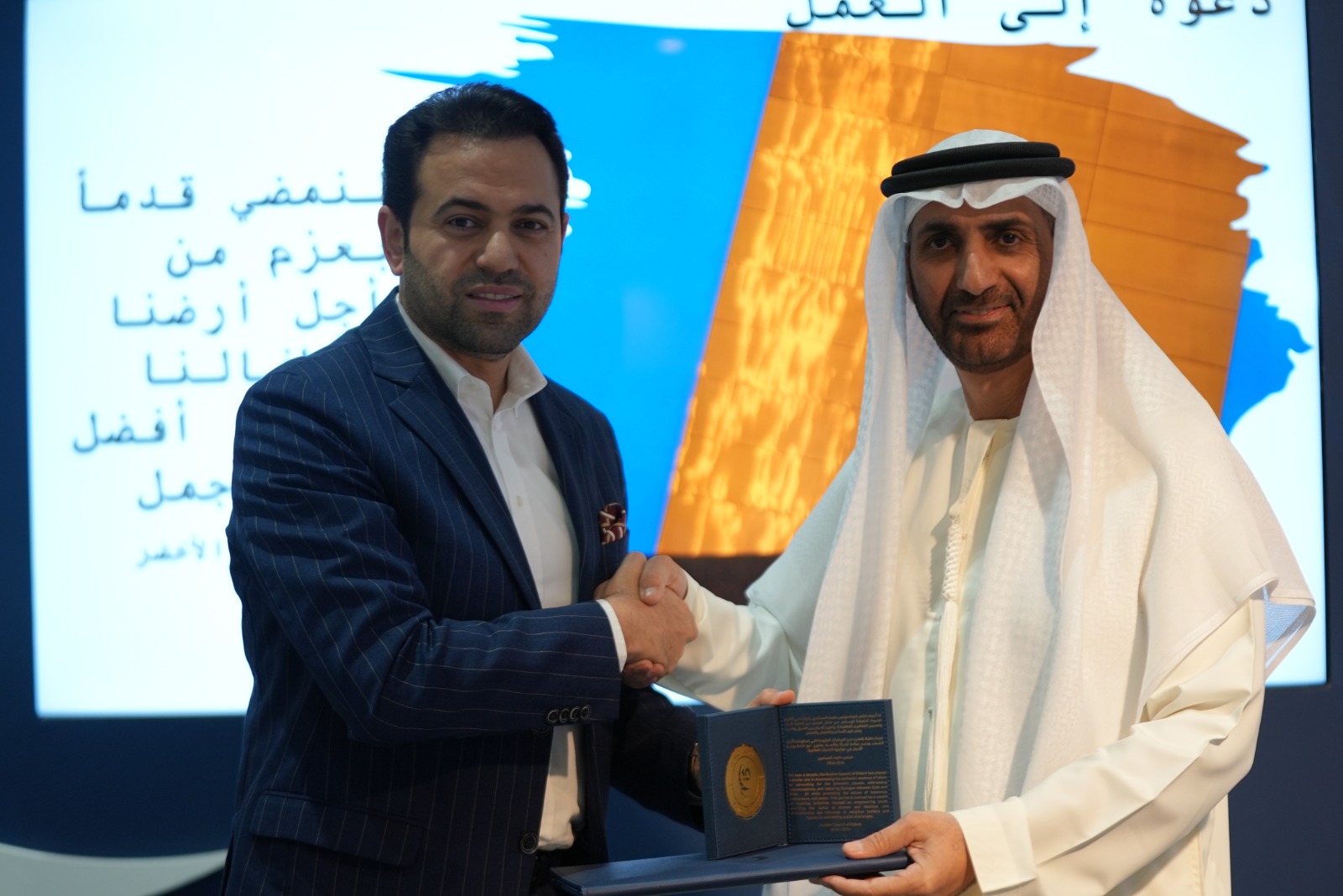In a seminar at the Muslim Council of Elders' pavilion in the Abu Dhabi International Book Fair - Sheikh Dr. Abdul Aziz Al Nuaimi (The Green Sheikh): We must work to establish a generation that understands the importance of preserving the environment and its natural resources
Sheikh Dr. Abdul Aziz bin Ali bin Rashid Al Nuaimi, the Environmental Advisor to the Government of Ajman and the Founder of Green Sheikh Academy, also known as "The Green Sheikh," participated in the first seminar organized by the Muslim Council of Elders' pavilion at the Abu Dhabi International Book Fair, which commenced under the theme "Where the World's Tales Unfold" until May 5, 2024, at the Abu Dhabi National Exhibition Center (ADNEC).
The seminar was attended by the Secretary-General of the Muslim Council of Elders, Judge Mohamed Abdelsalam, Dr. Ali bin Tamim, the Chairman of the Abu Dhabi Arabic Language Center, along with various intellectuals, scholars, experts, academics, and environmental enthusiasts.
At the beginning of the seminar, Sheikh Dr. Abdul Aziz bin Ali bin Rashid Al Nuaimi affirmed that protecting planet Earth has become an urgent necessity in light of the world's witnessing significant climate disasters and crises. He also pointed out that the founding fathers of the United Arab Emirates had a futuristic vision regarding the Earth and the protection of its natural resources.
The Green Sheikh added that environmental support efforts rely on several pillars, including education and upbringing in environmental matters, enhancing and instilling awareness about conserving natural resources, developing policies and legislation by governments and policymakers to implement sustainable approaches, activating innovative green technologies, and expanding partnerships between private institutions, governments, and civil society. He further emphasized that planet Earth cannot be fixed unless humanity itself is fixed first.
Sheikh Dr. Abdul Aziz bin Ali bin Rashid Al Nuaimi also discussed sustainability from an Islamic perspective, explaining that it is based on seven fundamental elements, including monotheism, human beings being stewards on this planet for its development, the environment being a trust held by humanity that must be managed carefully and respectfully, the necessity of moderation in daily behaviors related to the Earth and its natural resources, treating the environment with justice and kindness, avoiding harming or polluting it, and working to improve and preserve it for the benefit of all, and the existence of signs from the Almighty everywhere around us.
Sheikh Dr. Abdul Aziz bin Ali bin Rashid Al Nuaimi concluded the seminar by focusing on the most significant achievements of COP28 which was hosted by the United Arab Emirates last year, including the "Loss and Damage Fund" initiative to assist developing nations in addressing the effects of climate change. He further stressed the importance of establishing a generation that understands the importance of preserving the environment and its natural resources, to move forward for the sake of planet Earth and future generations, building a better world and a brighter tomorrow.
The Muslim Council of Elders launched the 'Call of Conscience: Abu Dhabi Statement on Climate Action for COP28', as well as organizing the Faith Pavilion at COP28, the first of its kind in the history of COP conferences, with the aim of achieving a common vision between faith leaders, academics, environmental experts, and youth to find effective and innovative solutions to combat climate change.
The Muslim Council is participating at the Abu Dhabi International Book Fair, presenting over 220 publications in 5 different languages, including 22 new releases in addition to hosting a series of seminars focusing on dialogue, tolerance, coexistence, youth, peacebuilding, and the environment, as well as an Arabic calligraphy corner and various activities dedicated to children. The Council's pavilion is located in Hall 10, Stand 10 C17, at the Abu Dhabi National Exhibition Center (ADNEC).

